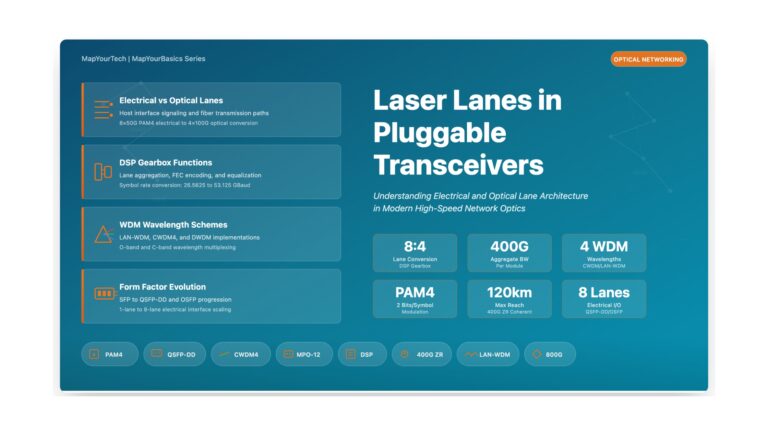Complete Interview Questions Guide
Master every interview with comprehensive questions, answers, and expert strategies
The number one way to ace to an interview is to know yourself! Always complete your research before an interview: know the kinds of things you are good at, the kind of things that you may need to work on, the kinds of experiences you've had in the past, what kind of boss you'd like to work for, what kind of company you'd like to work for, etc.
Questions that revolve around potential negatives are always the toughest to answer. Prepare for them by thinking about answers ahead of time. Type up answers or write them out, and review them before going into the interview. It is like studying concise, and then stopping and seeing if the interviewer wants to pursue it further.
The following questions have been identified as some of the toughest in the interviewing business. These are the ones you need to prepare for ahead of time!
The Toughest Interview Questions
1. Tell me about yourself
Probably the easiest difficult question you will face! It is easy to talk about you, but what does the employer really want to know? Try talking about personal characteristics and skills that translate into career strengths. Develop a one minute commercial for yourself. In one minute, tell someone from your high school days upward why you chose the college you did; what you did in college and why you made the decision to go into your particular field.
Typically the interviewer is looking for an overview of your related experience. Provide an answer that shows a logical progression throughout your educational/professional career. If your educational background led you in a certain direction, include that in the overview. While this may be seen as an easy question for some, quite a few solid candidates blundered on this simple question. We are not used to selling our abilities and competencies like a product. For those who have given it some thought, this is the right opportunity to talk about your strengths such as your enthusiasm, leadership, self-confidence and reliability, with a few real life anecdotes thrown in to support your points.
2. What are your greatest strengths?
You certainly have many positive qualities, but since you can only choose a few, be careful as your answer will also reflect your values. Some might say honesty, other reliability or a strong sense of leadership, but whatever it might be, be ready to make reference to a situation where you have demonstrated such strength. Examples help solidify and support your strengths.
3. What is your greatest weakness?
Admit that you have a weakness, and that you are successfully using a strategy to improve this weak are you have realized in your professional array of skills and experience. This technique turns the weakness into a strength by demonstrating your commitment to self improvement.
4. What were your favorite subjects in school and why?
Of course, if your major is Computer Science, you want to mention some of your computer science classes. You can mention other related subjects as well. For example, if you're interviewing at a financial services firm, you might discuss why you liked your accounting or finance classes. If you did any usual or special projects in that area bring it up now. Mention anything that shoes keen interests in this employer's particular kind of work.
5. Why change jobs now?
Interviewers want to now your reasons for leaving a particular position/employer. It is important to stay positive about your past experiences. Nobody wants to hire a person that complains about past employersthey figure you may complain about them in the future. Talk about why it was time to move on, that you learned a lot, you are seeking new and more challenging opportunities, etc.
6. What makes you stand out when compared with your peers?
Employers want to know that they are considering someone who will go above and beyond the call of duty. It is easy to hire a person that will do that they are asked to do between nine and five. However, it is better to hire a person that meets all the basic expectations and more. Provide examples of projects which you excelled with, ideas that helped streamline operations, or new sales/marketing techniques that increased revenues. If you put some thought into it, there are probably several things you have accomplishes in the past that makes you stand out.
7. What type of management / supervision do you prefer?
This question can come in many forms, but the meaning is always the same: are you able to be managed by people with different styles? You probably have reported to managers with vastly different approaches to management and supervision, and have learned which styles you prefer. Since you probably do not know the manager's style at the prospective employer, talk about the positive aspects of each style you've encountered.
8. What do you like about your current position? What would you add to make it more challenging?
Interviewers are looking for people that have some relevant experience for the position offered. This question allows you to pick the responsibilities that you enjoyed that are also included in the available position. (I like the people is NOT an acceptable answer, unless you are taking them with you!) The second part of this question focuses on what you want to learn in your next job. If it were available in your present/last position, you would still be there. Think about what this position offers and what you can contribute. This should match well with that you want to learn/do.
9. Where do you see yourself in (X) years?
This may be the toughest question of them all! If you only had a crystal ball! Basically, however, Interviewers are doing a reality check here. They want to see if you are a realistic about your career goals and the steps you will need to take to attain them.
The best answers start in the present and work forward. Talk about your next move and what you hope to accomplish over the next year or two. Then take that one or two more steps. Most importantly, keep your dreams within the realm of reality.
10. Why should we hire you for this position?
This question is as straightforward as they come. If you've prepared for the interview ahead of time, this one should be easy. Your answer should focus on your experience, accomplishments, why you are different than your peers, and your work ethic, as they pertain to the specific job description. If you handled the interview well up to this point, you are just tying it all together.
11. What books/magazines do you read?
Obviously, a technical or trade journal is one answer they are looking for. The books you've read tell the manager something about you personality. Whatever you do, don't say, "I don't like to read."
12. What interests you most about this position?
Your education, training and experience as well as your accomplishments should provide good references for answering that question. Do not hesitate to stress the fact that this would represent a dynamic move, while giving you the opportunity to grow, to increase your responsibilities and knowledge of the field, and may possibly help you define and reach new goals.
13. Do you work well under pressure?
Of course everyone will say yes, but it is more convincing if you could provide examples of situations when you have remained cool under fire. Be careful not to choose a situation of crisis for which you were the one responsible!
14. If you could change one thing about your personality, what would it be, and why?
Make the answer to this question positive by referencing your attitude and determination. Comments such as "I am sometimes impatient with slow performers" or "Being very demanding of myself" or "Sometimes I expect too much from others" are good. Keep in mind that most interviewers will use the information you give them to raise even more incisive questions.
15. How has your education prepared you for your career?
16. Are you a team player?
17. Have you ever had a conflict with a boss or professor? How was it resolved?
18. If I asked your professors to describe you, what would they say?
19. What qualities do you feel a successful manager should have?
20. If you had to live your life over again, what would you change?
21. Why were you fired from your last job?
If you were fired wrongfully, say it matter of factly. Do not show a grudge against your old employer. If you were fired because something that was your fault, say it in a less damaging way.
22. It's been 6 years since you started your bachelor's degree, why aren't you finished?
Be as positive as possible and explain your reasons calmly and logically. Never answer the following: you are having too much fun and did not have time, you do not think a degree is important, etc.
23. If you join our company, and another company offers you more money, will you leave? Or, how long will you stay with us?
If you say yes, you will probably not get the job. If you want, you can tell them that the salary will make you happy and keep you with this company. For example, you might say something like, "If I accept the job, then that means that I also accept the salary and I do not think I will leave." Concerning your length of employment longer is better. You may want to discuss that you want to stay at your next job as long as the relationship is mutually beneficial.
24. What are the things in a job that make you more productive? Less productive?
Remember, no work environment is 100% perfect. You can't please all of the people all of the time. However, we adapt and make the best of what we have. So make your answer practical.
25. Why have you been unemployed for the last two years?
You must have a sound reason for not working so long or having a big gap in your work history. Some examples of good reason would be: Caring for a sick family member; Raising children; Looking for the right job where you can really contribute (this will not work if the period of unemployment was an extremely long time); Trying out self employment or owning your own business; Returning to school for further training; Learning new skills; Exploring or traveling (for a short gap only).
26. At your last job, you worked at the same position for five years without a promotion. Why?
Avoid saying anything negative. Tell the truth in a positive way.Its human unconscious bias, negative things stuck in mind for long.
27. What salary are you looking for? Or, what kind of salary do you think you are worth?
Don't be too specific – a range is often most comfortable for everyone to work with. Even better, ask if the company has a salary scale and base your answer on that. Remember, salary is related to market value. Research your worth before you get into the interview. Also, interviews are not ignorant. Research your market value and give a range
28. How many players are there in a soccer game?
This type of question has nothing to do with your career. Right or wrong answers do not matter. Interviewers want to see if you can manage with nonrelated subjects, and think on your feet. They might be testing your ability to reason, problem solve, and utilize resources.
29. Do you have any questions?
If you have done your homework, you'll have several questions to ask about the position, company, or industry. Having questions already prepared makes you appear motivated to excel in the interview, and generally organized and put together. If all else fails, ask the interviewer if they need any further clarification about your qualifications.
Quick Reference Guide
Tell me about yourself
Why did you leave your last job?
What experience do you have in this field?
Do you consider yourself successful?
What do co-workers say about you?
What do you know about this organization?
What have you done to improve your knowledge in the last year?
Are you applying for other jobs?
Why do you want to work for this organization?
Do you know anyone who works for us?
What kind of salary do you need?
Are you a team player?
How long would you expect to work for us if hired?
Have you ever had to fire anyone? How did you feel about that?
What is your philosophy towards work?
If you had enough money to retire right now, would you?
Have you ever been asked to leave a position?
Explain how you would be an asset to this organization
Why should we hire you?
Tell me about a suggestion you have made
What irritates you about co-workers?
What is your greatest strength?
Tell me about your dream job
Why do you think you would do well at this job?
What kind of person would you refuse to work with?
What is more important to you: the money or the work?
What would your previous supervisor say your strongest point is?
Tell me about a problem you had with a supervisor
What has disappointed you about a job?
Tell me about your ability to work under pressure
Do your skills match this job or another job more closely?
What motivates you to do your best on the job?
Are you willing to work overtime? Nights? Weekends?
How would you know you were successful on this job?
Would you be willing to relocate if required?
Are you willing to put the interests of the organization ahead of your own?
Describe your management style
What have you learned from mistakes on the job?
Do you have any blind spots?
If you were hiring a person for this job, what would you look for?
Do you think you are overqualified for this position?
How do you propose to compensate for your lack of experience?
What qualities do you look for in a boss?
Tell me about a time when you helped resolve a dispute between others
What position do you prefer on a team working on a project?
Describe your work ethic
What has been your biggest professional disappointment?
Tell me about the most fun you have had on the job
Do you have any questions for me?
Unlock Premium Content
Join over 400K+ optical network professionals worldwide. Access premium courses, advanced engineering tools, and exclusive industry insights.
Already have an account? Log in here




